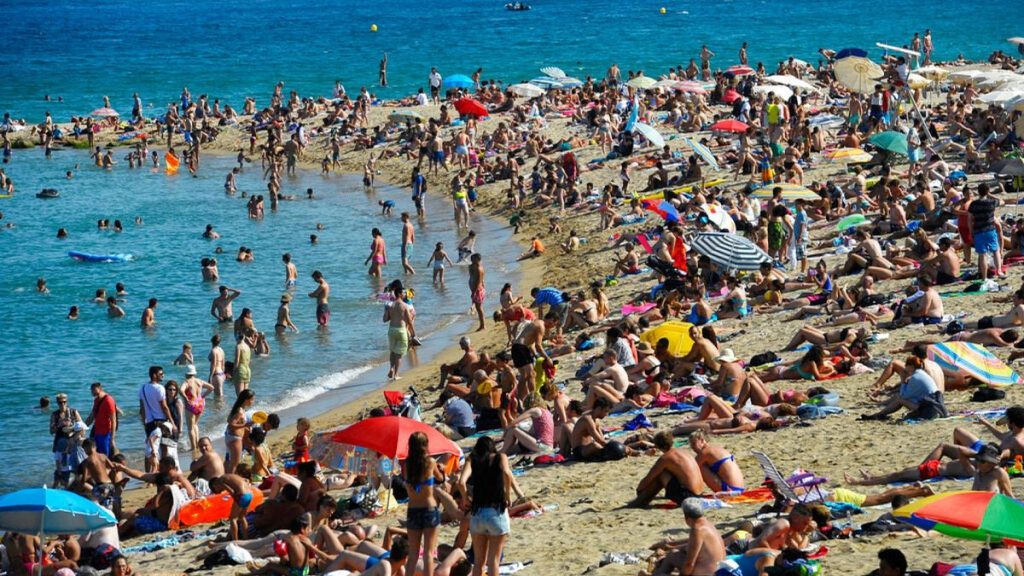Spain’s New Short-Term Rental Regulations: A Deep Dive into the Impacts and Implications
In January 2025, the Spanish government introduced new regulations targeting short-term rental platforms like Airbnb, aiming to address housing shortages and overtourism. These regulations require property owners to register on a national database, obtain permits, collect guest information, and potentially face a VAT increase. The government argues that platforms like Airbnb exacerbate the housing crisis by incentivizing property purchases for rental purposes, driving up prices and reducing availability for residents. Prime Minister Pedro Sanchez pointed to the significant number of properties purchased by non-EU residents for investment, emphasizing the need to prioritize housing for residents over tourist accommodation. The government also proposed a hefty tax on property purchases by non-EU buyers, further discouraging foreign investment in the Spanish housing market.
These new regulations are not without their challenges. Implementation has been met with confusion due to varying interpretations at municipal, regional, and national levels. For instance, Andalucia applies different rules based on rental duration, while Madrid plans to ban new short-term rentals in the city center. This lack of standardization creates uncertainty for property owners and rental platforms alike. Furthermore, Airbnb, backed by a report from Oxford Economics, argues that these restrictions will negatively impact rural communities and small businesses that rely on tourism revenue generated through short-term rentals. They contend that the regulations will disproportionately affect family tourism, which often seeks affordable accommodation in less crowded areas, potentially harming Spain’s competitiveness as a family-friendly destination.
Airbnb and Oxford Economics highlight the significant economic contribution of short-term rentals to the Spanish economy. In 2023, short-term rental guests spent €29.6 billion in Spain, benefiting local shops, restaurants, and businesses. The report also notes a growing trend towards rural tourism, with a significant portion of short-term rental nights spent in less-populated areas. This dispersal of tourism benefits local communities and promotes sustainable tourism practices. Airbnb emphasizes its role in facilitating these rural experiences and directing tourists away from overcrowded urban centers. However, the Spanish government remains concerned about the impact of short-term rentals on housing availability, particularly in popular tourist destinations.
The efficacy of such restrictions in addressing overtourism is questionable, as evidenced by the case of Amsterdam. Despite implementing similar regulations in 2022, Amsterdam experienced an overall increase in guest nights, with hotels benefiting while short-term rentals suffered a significant decline. This suggests that tourists haven’t stopped visiting but have shifted to alternative accommodations, potentially leading to a rise in unregulated rentals. This raises concerns about the effectiveness of restrictions in curbing overtourism and the potential for unintended consequences, such as the growth of an informal rental market. Furthermore, the debate extends beyond simply regulating short-term rentals, encompassing broader discussions about tourism management, including potential quotas and the type of tourism cities can sustainably accommodate.
The core issue, according to industry experts, is not short-term rentals but rather a fundamental lack of housing supply. The pace of new construction has not kept up with demand, exacerbated by increased production costs, labor shortages, and a lack of investment incentives. A new residential law introduced in 2023 has further discouraged private landlords from entering the market. Additionally, Spain faces a substantial number of vacant homes, indicating a mismatch between supply and demand. Airbnb and industry experts argue that the focus should be on increasing housing supply rather than restricting short-term rentals, which represent a relatively small percentage of the overall housing stock.
In conclusion, Spain’s new short-term rental regulations have sparked a complex debate about housing affordability, overtourism, and the role of platforms like Airbnb. While the government aims to prioritize resident housing and manage the impacts of tourism, concerns remain about the effectiveness of these regulations and their potential unintended consequences. The discussion highlights the need for a comprehensive approach to housing policy and tourism management, considering the interplay between supply, demand, and the diverse needs of both residents and visitors. Focusing solely on restricting short-term rentals may not address the root causes of the housing crisis and could inadvertently shift tourism patterns without solving the underlying issues.


